10 movies everyone HAS TO SEE at least once
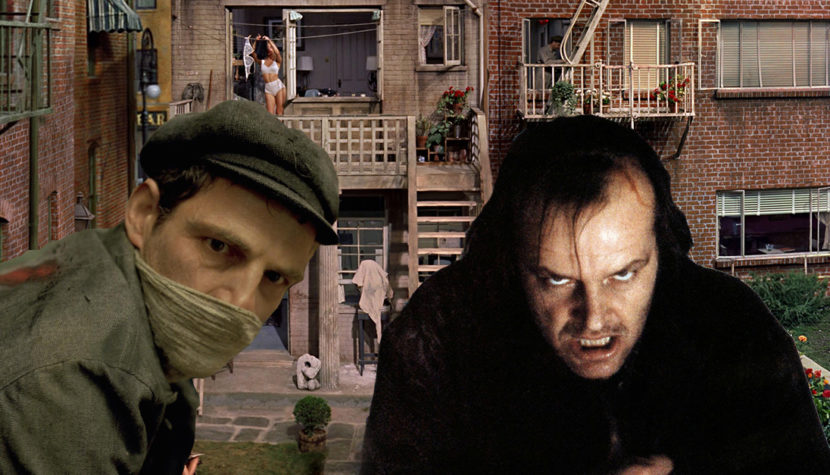
Most often, the authors of those lists choose the titles the simplest possible way, i.e. they look for those productions that, in their opinion, are the best. Despite the obvious subjectivity of such lists, it makes no sense to deprive them of their value, because they usually consist of canonical productions. However, let’s shift the center of gravity a bit and look for universal films that say extremely important things about a specific topic. They don’t have to be outstanding works right away, sometimes they may lack a lot to be perfect, but nevertheless they contain an extremely important element, without which a conversation about cinema or simply mankind would be incomplete. Simply put, let’s look for movies that everyone should see at least once.
Citizen Kane

It is not without reason that the work of Orson Welles is often chosen as the most important film in the history of art. The story of the rise and fall of a powerful newspaper magnate is an outstanding piece of work in every way. From the phenomenal role of the director, through the unusual way of narration, to the overtones, Citizen Kane appears to be the source of a revolution without which cinematography would struggle for recognition longer. Not only did Welles manage to create a current and universal work, with commercial potential and ambitious at the same time, he also used so many tricks that kilometers of scientific papers were written about his film.
Welles understood the potential of the camera. He proved that the film, thanks to, among other things, different types of framing, can be a different way of telling a story. He took full advantage of the power of disrupting the chronology of events. He introduced a mystery he didn’t really want to solve. He perfected the technical side of the spectacle, and in addition presented a credible figure of a hero for whom money and power were only help in fighting the pain of existence. It is not a great exaggeration to say that you can divide the history of cinema into that before Citizen Kane and after its premiere. Maybe Welles’s film was underestimated at the Oscars, losing to a film that no one remembers now, but it is impossible to discuss cinematography without reference to this great production.
It's a Wonderful Life
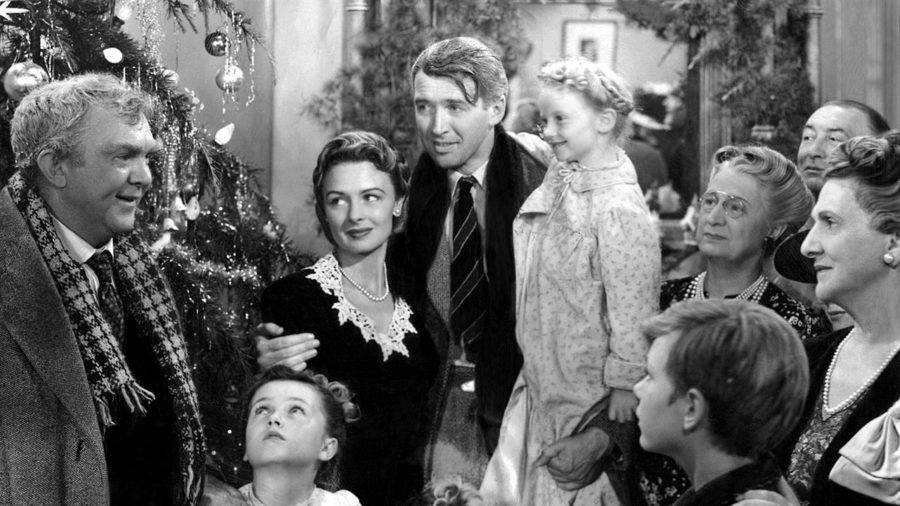
Everyone has moments in their life when they just don’t feel like living. The family is unbearable, love is not good, money is running out like a life itself, and old age is slowly staring into the eyes. Frank Capra’s film is an extremely effective remedy for these ills. You do not need to read the prescription or consult a doctor or pharmacist. All you need is a two-hour dose of the masterpiece It’s a Wonderful Life, and your strength will return, your worries will go away and you will feel the desire to compete with cruel fate.
The character played by James Stewart is also constantly struggling with dilemmas. Although he has a loving wife and children, he seems to be stuck in a small town. He has a difficult, not very well-paid job, everyone picks on him, and in addition he does not use the potential with which he was supposed to make a great career. It is when a man is at the very bottom that there is an opportunity to work through traumas and understand what the essence of existence is. It’s a Wonderful Life is an incredibly warm and moving film. Fabulously simple, yet so fantastically realized that even the hardest, most experienced hearts have to soften and succumb to the wave of positive emotion that flows from Capra’s work. There is no better cinematographic proposition with which you can fight difficult emotions. Effectiveness guaranteed!
Rear Window

Of course, there could be many more Alfred Hitchcock films in such a list, although it seems that this title is extremely important for the entire formation of creators that later appeared in the game. Rear Window is one of the first, and certainly the most important, films that made viewers stop being innocent observers of what is happening on the big screen. Hitchcock fantastically proved that the thread connecting the director with the viewer is much stronger than it might have seemed before. It turned out that this relationship is perverse in its own way, because the internal needs of the viewers, which demand fulfillment, turn out to be extremely important.
For this reason, the story of a photographer locked in the house (another great role by James Stewart) spying on the neighbors is not just a thriller. It’s not just the adventures of a voyeur who accidentally noticed a murder being committed. It is also an extremely important essay on the ontological foundations of the movie. Despite the sensational, commercial (in a good sense of the word) plot, the Brit managed to reveal the fetishization of what viewers perceive. The window to the backyard became not only an exciting pastime, but also a contribution to academic discussions that continue to this day.
Breathless (À bout de souffle)
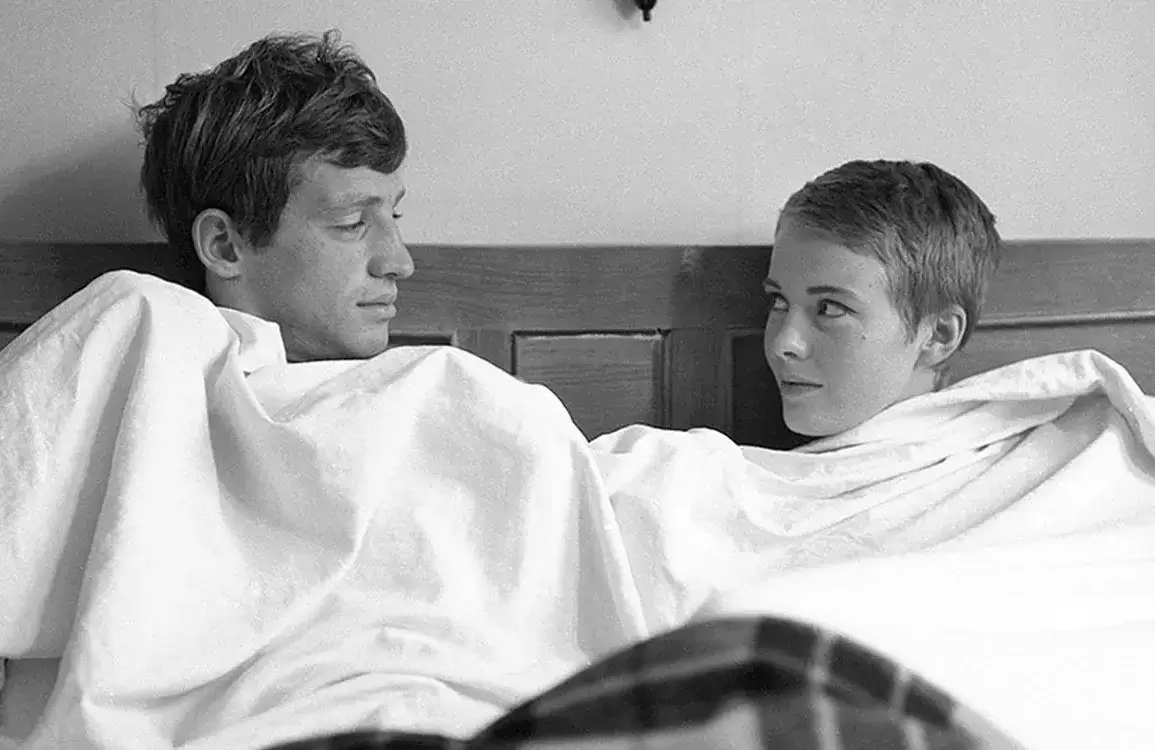
I am not a particular fan of Jean-Luc Godard’s work, but there is nothing to hide – without this film there would also be no great revolution in world cinema. Of course, academics argue which film should be treated as the beginning of the French New Wave, but it was Breathless that became the most representative representative of this trend. Previously, filmmakers had tried to bend the conventions with varying degrees of success. Meanwhile, Godard walked over to the board, knocked it over, and laid down his rules, which was a really big thing.
The cult character of this film manifests itself literally in every second. Forget about the plot, because it didn’t matter in the slightest. Anyway, the Frenchman entered the set with an incomplete script, added hastily, sometimes abandoned in favor of acting improvisations. It was all about manifesting the need for freedom. The actors, above all the phenomenal Jean-Paul Belmondo and Jean Seberg, were themselves, and the “sloppy” editing was an expression of rebellion against the top-down rules. It was about a breath of fresh air in a cinema depicted by crazy car driving with a cigarette in his mouth, seemingly talking about nothing, playing with convention, mixing high with low, and the need to smash everything that might stand in the way of freedom. It was about chasing a dream until you were out of breath. As a guest star by another great director, Jean-Pierre Melville, said, the greatest dream is to become immortal and die.
A Special Day (Una giornata particolare)
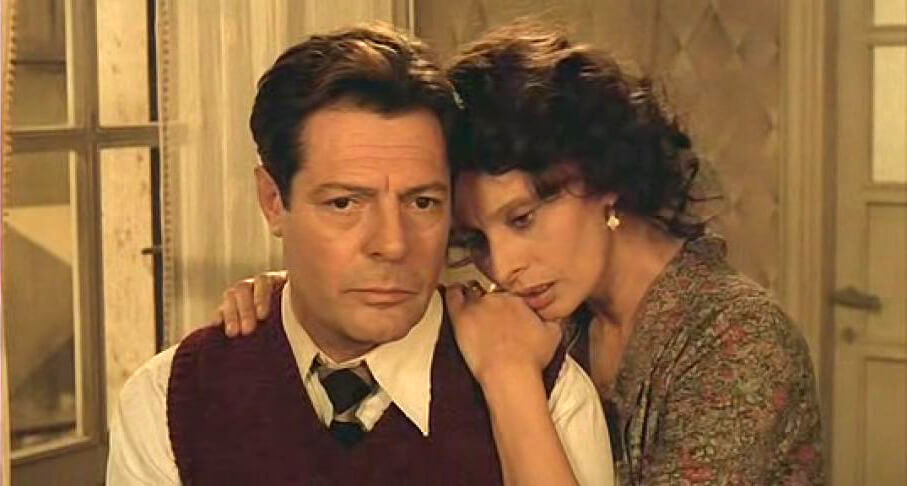
A significant part of Western societies has the impression of returning to the times before the Second World War, when democratic orders were broken in successive European countries. It seems that we are indeed entering a difficult period for the current legal order, because from everywhere, including from governments, as well as galloping digital progress, there are dangers of losing sovereignty and freedom. It is therefore worth remembering what this threatens by watching Ettore Scola’s fascinating film A Special Day.
It is an extremely intimate story about two people crushed by the fascist machine built by Mussolini. She (Sophia Loren) is a housewife squeezed into the patriarchal order, whose task is to take care of her husband and children. He (Marcello Mastroianni) is an oversensitive man who lives alone, keeping a secret that would put him in great danger. When a huge rally takes place in Rome, attracting crowds, the two heroes staying at home have a chance to get to know each other and finally talk to someone who listens and understands. A Special Day is an extraordinary study of individuals isolated by authoritarian societies who must remain silent and follow orders or lose literally everything. Great performances by Italian artists add to the drama of the whole spectacle, thanks to which you watch it with a lump in your throat, as well as with the awareness that you have to do everything possible so that such times will never come back.
The Shining

You just have to know the films of Stanley Kubrick. You don’t have to fall on your knees in front of them right away, but it’s worth appreciating the extraordinary precision of each of his films. The Shining is a unique film for him. The director managed to combine literally everything – the convention of horror (rather exploited in B-class cinema) with an unusual portrait of a mentally twisted individual, and social commentary with a political manifesto. In addition, it is probably around this production that the most conspiracy theories have grown. Just reading them makes you dizzy. The search for the other side, with hints of a staged landing on the moon, pedophile tendencies of artists and a general conspiracy of the elite, is an indispensable element of The Shining screening. The cult of this film continues to this day, and the next generations are looking for new ways to read it.
And if someone just wants to marvel at Kubrick’s film, they can do that too. The Shining is not your typical horror movie. There are no typical jumpscares here, what counts is creating an aura of loss, mystery, claustrophobia, and all this is achieved thanks to the extraordinary camera work, the play of colors and the suggestive soundtrack. There is no need to write about Jack Nicholson, because everyone knows that the actor has outdone himself by creating a legendary role.
Cinema Paradiso

If the world were beautiful, it would look like in Cinema Paradiso. Giuseppe Tornatore’s film is disgustingly maudlin, tacky in its sentimentality, opportunistic in playing with human emotions. However, it doesn’t matter in the slightest. Literally anything can be forgiven in this movie. It is about experiencing a beautiful adventure alongside a young protagonist maturing in the cinema, learning life from the cinema, stumbling through the cinema, and finally returning to the cinema as a more mature man simply looking for fulfillment.
It is worth watching Tornatore’s work at least once because of the extraordinary feelings permeating every minute of it. While the aforementioned Rear Window was a stripping cinema of innocence, Cinema Paradiso is an attempt to restore it. As the Italian director shows, it’s not about playing with the viewer, stuffing him with perverse images or influencing his worldview. It’s all about presenting history in such a way as to move, amuse and encourage self-reflection. Tornatore’s production is a tribute to great artists, without whom there would be no cinema. It is a fantastic lesson that is definitely worth taking to see how this medium has influenced and still affects the fate of many people around the world. Besides, it’s beautiful to cry during such a film, there’s nothing to be ashamed of.
Amour
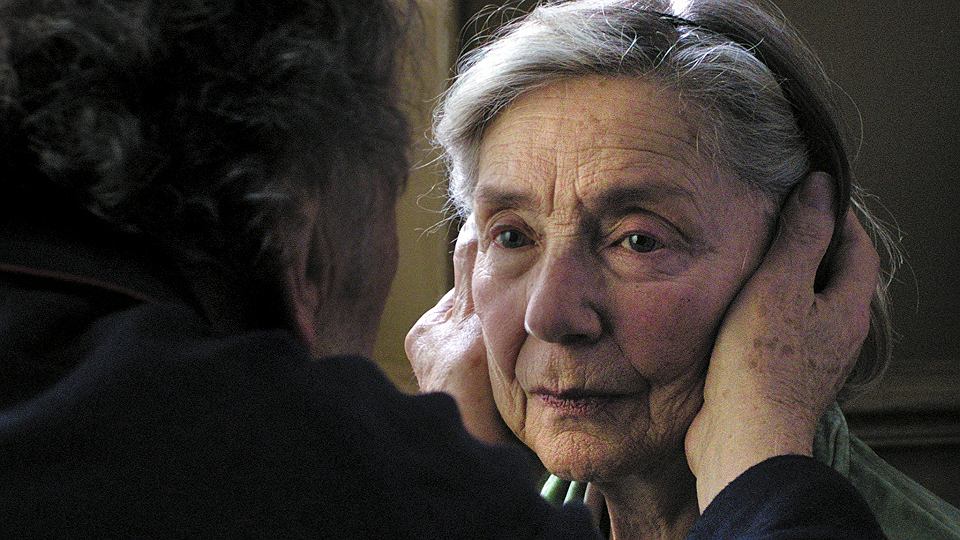
Very often, the current culture helps in escaping from the difficult reality. It is enough to immerse yourself in the screen to experience amazing adventures together with beautiful, rich and young people to whom the world is open. Meanwhile, Michael Haneke does not propose a new life-changing experience in Amour. It does not offer fun or cheap nihilism. It invites you to watch the existence that every human being will experience someday.
It was enough for the Austrian director to hire two great cinema celebrities – Emmanuelle Riva and Jean-Louis Trintignant – to hit them straight in the face with banal truths that many people run away from. Haneke showed old age without any embellishment. He looked at the long-term couple waiting for death to come. At the same time, he did not exploit the topic excessively, he did not charge, he did not allow himself any eccentricities. It was enough to show the prose of life to prove that in the fight between man and biology we are always on a losing position. What is extremely important, despite the enormous suffering, we should not worry about it. Haneke is a humanist, so he sees in us a dignity that we must cherish in order to leave on our own terms anyway. Amour is a paean to this true humanity – not superheroic, but broken, diseased, decimated by pain, and still going on, going forward, proving that man sounds proud.
Son of Saul (Saul fia)

The list had to include at least one film dealing with the World War II. There were many candidates, but the choice fell on the Son of Saul because the film by László Nemes is an incredibly realized vision of hell on earth. If someone is to understand with the help of culture what the bestial behavior of Nazi Germany consisted in, then he must reach for the work of the Hungarian artist.
Nemes focuses on virtuosity hidden under the cloak of apparent simplicity. He chooses a member of the Sonderkommando as the hero and follows his every step. The camera is usually behind his back and follows from the train station, where prisoners of the concentration camp are unloaded, to the gas chambers, where the man is responsible for moving the corpses to previously dug pits. Nemes deprives the viewers of the power of the gaze, showing a small piece of reality, basically as much as the hero himself sees. This is enough to achieve success and tell about the inhuman conditions in which human life was worth nothing. Son of Saul is the best proof that, despite the passage of time, old wars should still be talked about to remind why peace must be sought at all costs.
Sorry We Missed You

Very often, directors focus on the most important elements of the story, look for great, distinctive characters, and often ignore the “ordinary” everyday life, treating it as an element unworthy of being immortalized by art. Fortunately, there are still creators like Ken Loach, thanks to which we can remember where we live and what we have to do to keep it all from falling apart overnight.
Loach portrays the fate of a poorer British family whose members must take on as many jobs as possible in order to earn enough money to support themselves. Sorry We Missed You is a lesson in capitalism, thanks to which the thesis of exploitation prevailing among the lowest social classes is proved. Maybe Loach doesn’t want to undermine the whole system right away, but he effectively proves that all problems come from the mad pursuit of money. This can be seen, for example, in the way the courier’s work is shown. Would anything happen if the ordered package arrived one day later? Probably not, but consumer pressure is so strong that employees have to work overtime and sacrifice family life to provide trinkets, knick-knacks and other things that customers could easily do without for a little longer. For this reason, Sorry We Missed You should be treated as an extremely accurate portrait of our times. This is a warning that the dehumanization of people with lower incomes combined with the maximization of profits will first lead to quiet, individual tragedies, but ultimately may lead to global consequences, after which nothing will be left unturned. And it’s enough to at least be nice to the courier.

